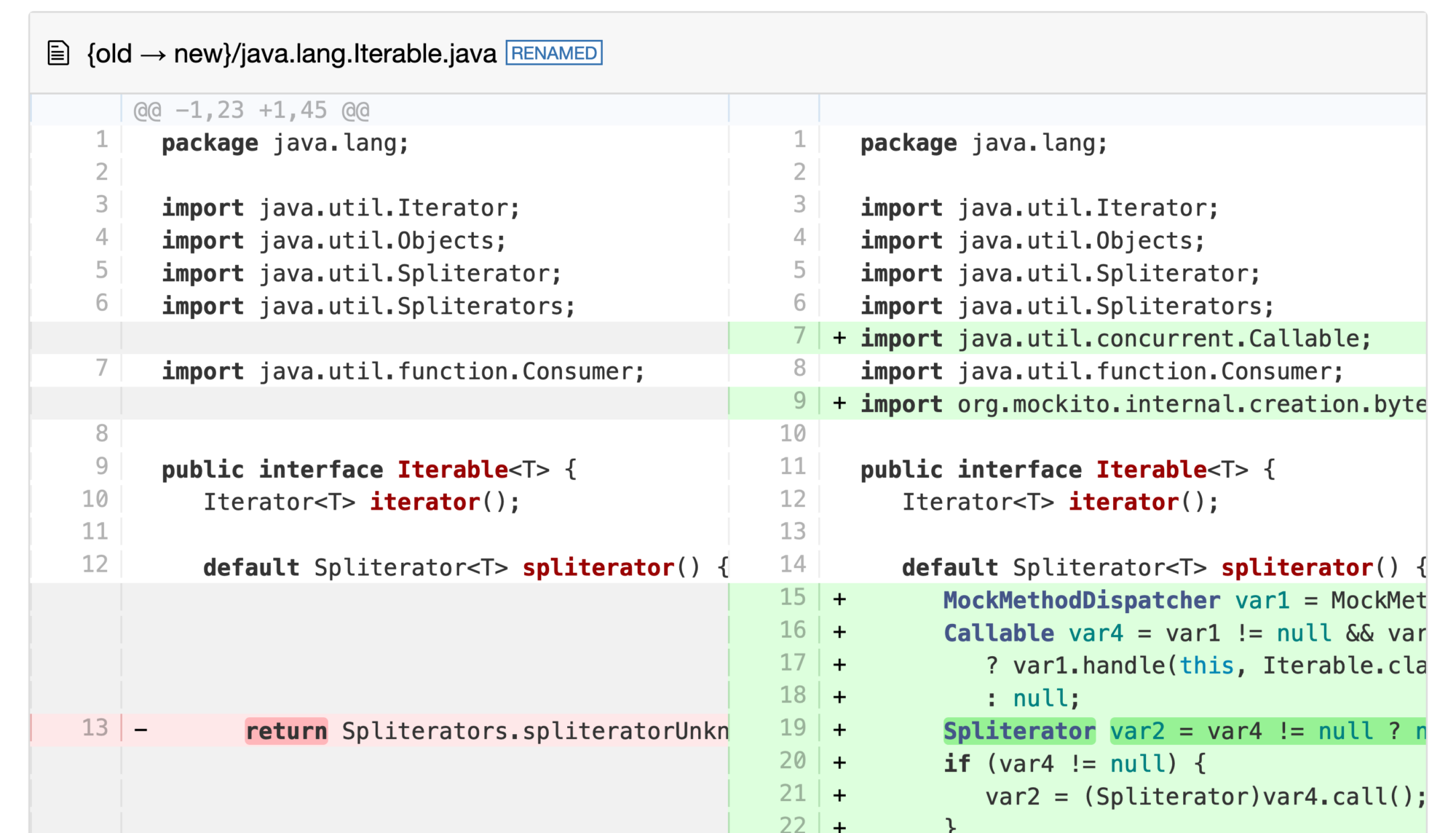Fixing bugs in Spring Boot and Mockito by instrumenting them
Have you ever wondered how libraries like Spring and Mockito modify your code at run-time to implement all their advanced features? Wouldn’t it be cool to get a peek behind the curtains? This is the premise of my meta-agent, a Java agent to instrument instrumenters, to get these insights and what this blog post is about. This post is a collaboration with Mikaël Francoeur, who had the idea for the meta-agent and wrote most of this post. So it’s my first ever post-collaboration. But I start with a short introduction to the agent itself before Mikaël takes over with real-world examples.
Meta-Agent
The meta-agent (GitHub) is a Java agent that instruments the Instrumentation.addTransformer methods agents use to add bytecode transformers and wrap the added transformers to capture bytecode before and after each transformation. This allows the agent to capture what every instrumenting agent does at run-time. I covered the basics of writing your own instrumenting agent before in my blog post Instrumenting Java Code to Find and Handle Unused Classes and my related talk. So, I’ll skip all the implementation details here.
But how can you use it? You first have to download the agent (or build it from scratch via mvn package -DskipTests), then you can just attach it to your JVM at the start:
java -javaagent:target/meta-agent.jar -jar your-program.jar
This will then create a web server at http://localhost:7071 that allows you to inspect the bytecode modifications of each instrumenter dynamically. For the example from the README http://localhost:7071/full-diff/class?pattern=java.lang.Iterable shows you, for example, how Mockito modifies the Iterable class upon mocking:

